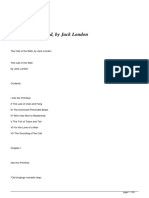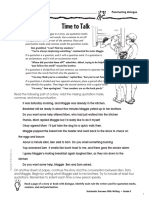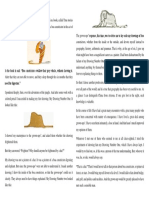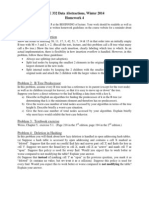0% found this document useful (0 votes)
18 views10 pagesBooklet of Paper 1 Examples
In 'Call of the Wild' by Jack London, Buck, a strong and noble dog, lives a privileged life in Santa Clara Valley until the discovery of gold in the Arctic leads to his abduction for use in the harsh northern wilderness. The narrative highlights Buck's transition from a pampered pet to a resilient survivor as he faces the challenges of his new environment. The story explores themes of survival, instinct, and the struggle between civilization and the wild.
Uploaded by
samakshgupCopyright
© © All Rights Reserved
We take content rights seriously. If you suspect this is your content, claim it here.
Available Formats
Download as DOCX, PDF, TXT or read online on Scribd
0% found this document useful (0 votes)
18 views10 pagesBooklet of Paper 1 Examples
In 'Call of the Wild' by Jack London, Buck, a strong and noble dog, lives a privileged life in Santa Clara Valley until the discovery of gold in the Arctic leads to his abduction for use in the harsh northern wilderness. The narrative highlights Buck's transition from a pampered pet to a resilient survivor as he faces the challenges of his new environment. The story explores themes of survival, instinct, and the struggle between civilization and the wild.
Uploaded by
samakshgupCopyright
© © All Rights Reserved
We take content rights seriously. If you suspect this is your content, claim it here.
Available Formats
Download as DOCX, PDF, TXT or read online on Scribd
/ 10




























































































